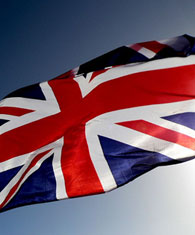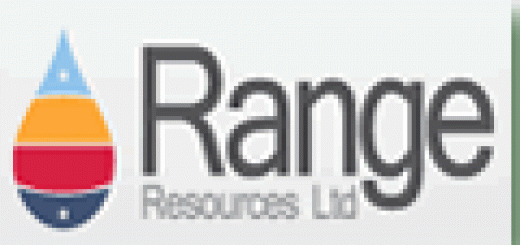 Royal Bank of Scotland is under investigation by US authorities for potential breaches of sanctions against Iran. The taxpayer-backed UK bank is understood to be being scrutinised by the US Federal Reserve and the Department of Justice, after it provided information to them and to the UK regulators. RBS tonight would not comment on the nature of the alleged failings or the investigation. However it said in its half-year results earlier this month that it was conducting a “review of its policies, procedures and practices” around its processing of US dollar payments outside the US, according to The Telegraph.
Royal Bank of Scotland is under investigation by US authorities for potential breaches of sanctions against Iran. The taxpayer-backed UK bank is understood to be being scrutinised by the US Federal Reserve and the Department of Justice, after it provided information to them and to the UK regulators. RBS tonight would not comment on the nature of the alleged failings or the investigation. However it said in its half-year results earlier this month that it was conducting a “review of its policies, procedures and practices” around its processing of US dollar payments outside the US, according to The Telegraph.
Falling sales of traditional PCs and laptops have undermined the earnings of one of the world’s biggest computer makers. Dell, based in Texas, said that first-half earnings had slumped by 26% to $1.4m (£887m) compared with the same period a year ago. The company also warned of a “challenging” second half because customers were cutting back on computer purchases, partly in anticipation of the launch of Microsoft Windows 8 late this year. The shares were off almost 5% in after-hours trading before recovering. America’s second-biggest PC manufacturer had been expected to show slower growth, but comments by the company that sales could be down by as much as 5% in the current quarter took the market by surprise. It also guided earnings estimates down to well below analysts’ already reduced forecasts, The Times reports.
Britain’s company directors are turning against the Government, accusing it of doing “too little, too slowly” to engineer an economic recovery. In their latest quarterly survey, members of the Institute of Directors, traditionally natural supporters of the Tory party, have delivered withering criticisms of the Government’s economic and industrial policies. Unrest over issues such as taxation and red tape is compounded by frustration and doubt that the coalition can get Britain out of recession by the end of the year. The continuing chronic uncertainty, say the directors surveyed, is strangling business investment and halting hiring decisions, The Times writes.
Royal Dutch Shell plans to spend at least $1bn (£633m) a year exploiting China’s potentially vast resources of shale gas, the firm’s top China executive has said, in an aggressive strategy to expand in the world’s biggest energy market. Shell in March secured China’s first product sharing contract for shale gas, hoping that getting in early will allow it to be a big beneficiary from the sort of boom in shale that has transformed the US energy market. Asked if the firm remained committed to a plan to invest $1bn a year in China’s shale gas over the coming few years, Lim Haw Kuang said: “Yes, yes and yes.” “If there has been an adjustment to that pledge, it could only be an upward revision,” added Lim, a Malaysian national and Shell veteran of 34 years, The Guardian reports.
The latest survey of hedge funds by the FSA has concluded they pose little risk to the financial system. Funds continue to report a strong ability to manage the liquidity of their assets and liabilities in aggregate,” said the report. Nevertheless, the FSA warned that its survey results were based on self-assessments by individual managers and that it was difficult for regulators to gauge exactly how funds would be affected in the event of a new market downturn. “Risks to hedge funds remain from a sudden withdrawal of funding, resulting in forced asset sales. This is of particular concern if funds have significant footprints,” said the FSA. The reduction which has taken place in the risk posed by hedge funds in part reflects moves by their counterparties, largely the prime broking desks of banks that provide short-term loans to managers, to tighten their lending criteria and increase the amount of margin they must provide to place trades with them.
Whitehall departments are braced for more spending cuts after plunging tax receipts left the Treasury facing the prospect of a new black hole in the public finances this autumn. Proceeds from corporation tax sank 20% in July compared with the same month last year, while spending on benefits was 6.2% higher. This forced the Government to borrow £600m in July, compared with a surplus of £2.8bn in the same month last year. The numbers shocked the City, which had been expecting a £2.5bn surplus. July is usually the second biggest month for tax receipts. George Osborne, the Chancellor, is now waiting for the government spending watchdog, the Office for Budget Responsibility, to rule in October on whether this gap must be filled by additional cuts. A Treasury source said the data showed a “pretty terrible four months which, for each one since April, has been worse than expected,” The Times says.
Generali has become the latest European insurer to plan an exit from the US after Italy’s largest insurer by annual premiums put its US life reinsurance business up for sale, according to a person familiar with the matter. Citigroup is advising the company on a sale of its Generali USA Life Reinsurance unit, which could be worth as much as $1bn. The sale process is in its early stages, with potential buyers likely to receive sale documents next month. Citi and Generali declined to comment. The move, first reported by Bloomberg, comes as some of Europe’s biggest life assurers are rethinking their strategy in the face of regulatory concerns and highly competitive market conditions, The Financial Times reports.

